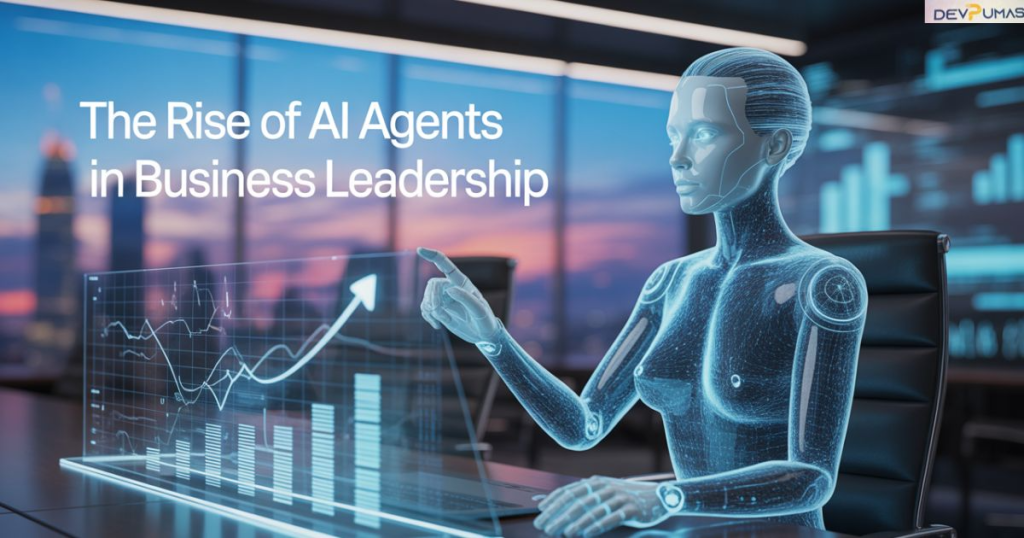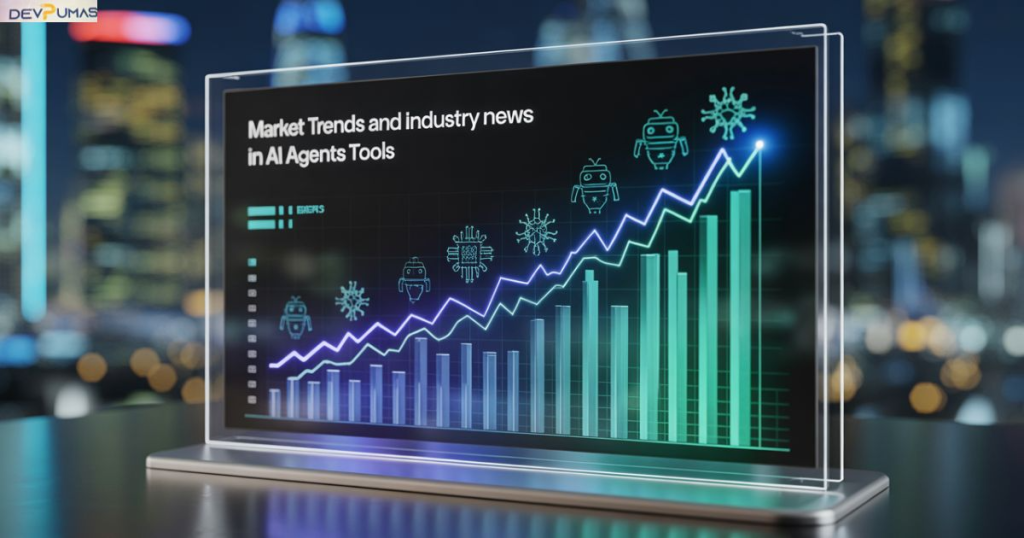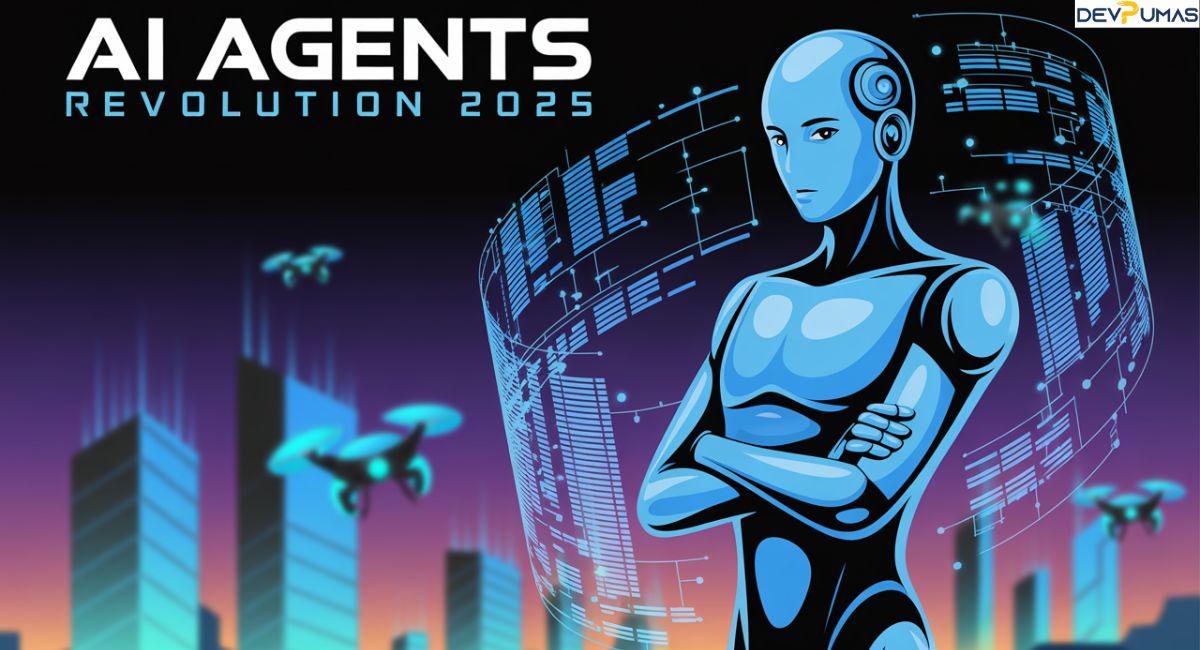Introduction
The year 2025 marks a turning point in how businesses operate. AI workflow automation is no longer just a buzzword; it’s the backbone of modern industries. From retail to leadership, and from customer service to software development, AI agents are reshaping everything. These digital assistants combine intelligent automation, machine learning in automation, and natural language processing (NLP) to carry out complex tasks. Unlike older rule-based workflows, today’s agents adapt to real-time changes. Companies in the UK are already investing heavily in these technologies to gain an edge. This guide explores how the AI agents revolution is unfolding and why it matters for businesses and beyond.
What Are AI Agents and Why They Matter in 2025
AI agents are advanced programs that act on behalf of humans by making decisions, learning patterns, and carrying out work autonomously. They bring together workflow orchestration, predictive analytics in workflows, and intelligent document processing to deliver more value than static software ever could. In 2025, their importance lies in adaptability. Unlike traditional vs AI automation, where one follows rigid rules and the other learns dynamically, AI agents can evolve as conditions shift.
The rise of data-driven workflows has made them vital to operational success. For example, businesses use AI-powered chatbots to handle millions of queries daily, while computer vision automation ensures precision in manufacturing and logistics. With human-in-the-loop AI, agents still involve people where judgment is needed, striking a balance between automation and human expertise.

The Rise of AI Agents in Business Leadership
Leaders across industries are turning to AI in business operations to improve performance and agility. In boardrooms, executives rely on predictive analytics in workflows to anticipate risks and trends. By orchestrating processes through enterprise automation tools, they can make faster, evidence-based decisions.
A recent survey in the UK showed that 70% of executives believe AI workflow automation is crucial for achieving operational excellence. Leaders are no longer limited by manual reporting cycles. Instead, workflow orchestration engines deliver insights in real time, giving them the ability to act instantly.
AI Agents in Retail: Transforming Customer Experiences
Retailers are using AI workflow automation to create personalised shopping journeys. From AI-powered chatbots answering customer queries to computer vision automation in self-checkout, the retail experience has become smarter and smoother. These tools allow stores to cut waiting times and predict customer needs with predictive analytics in workflows.
A case study from the UK highlights this shift. One retailer deployed intelligent automation to manage online orders and customer service automation, reducing response times by 50%. Shoppers reported higher satisfaction, while the company saw an increase in repeat purchases.
How AI Agents Are Reshaping Support and Service Teams
Customer support is being redefined by AI workflow automation. Instead of large human teams, companies now rely on agents that deliver answers instantly. By combining NLP, machine learning in automation, and human-in-the-loop interfaces, service desks can resolve issues faster.
This shift doesn’t just reduce costs; it improves customer satisfaction. For instance, when an issue is too complex, the AI agent escalates it to a human. This ensures that workflow management systems remain efficient without losing the human touch that builds trust.
AI Shopping Agents: The Future of E-Commerce
The future of e-commerce belongs to AI shopping agents. These digital assistants act as personal buyers, comparing products, prices, and delivery options in seconds. UK businesses already use them to boost sales, optimise promotions, and enhance the shopping journey.
By integrating AI workflow automation, retailers cut manual processes and improve process efficiency. As more customers embrace these tools, automation scalability becomes vital. Businesses that fail to adopt AI shopping agents risk falling behind in a market where speed and personalisation define success.
AI in Software Development: Grok-Code-Fast-1 and Beyond
Software development is entering a new era with Grok-Code-Fast-1 from xAI and similar AI agents. These tools don’t just suggest code but actually build frameworks using adaptive workflows and rule-based workflows. Developers save time by letting agents handle repetitive tasks, while focusing on creativity.
Beyond coding, workflow orchestration engines ensure that testing, debugging, and deployment happen seamlessly. This means software delivery cycles are shorter and more efficient, leading to faster innovation across industries.
Key Benefits of Using AI Agents Software
The benefits of AI workflow automation extend far beyond efficiency. Companies gain better process efficiency, fewer errors, faster service, and the ability to scale. Operational excellence becomes achievable when agents run daily operations without fatigue.
Here’s a comparison of manual vs AI agent-driven workflows:
| Feature | Manual Process | AI Agent Automation |
| Speed | Slow | Fast, real-time |
| Accuracy | Error-prone | Highly accurate |
| Scalability | Limited | High |
| Cost | Expensive | Cost-effective |
| Customer Experience | Inconsistent | Personalised |
Tips for Choosing the Right AI Agent Software
Choosing the right software is critical for success. Companies must check if tools integrate with existing workflow management systems, support data input and integration layers, and allow for automation scalability. Without these features, implementation can be costly and inefficient.
It’s also important to choose vendors that provide a clear human-in-the-loop interface and a strong monitoring and feedback loop. This ensures the business stays in control, while still benefiting from the speed and intelligence of AI agents.

Market Trends and Industry News in AI Agents Tools
The global market for AI workflow automation is growing rapidly, with UK adoption leading in retail and finance. Recent trends include intelligent document processing, predictive analytics in workflows, and enterprise automation tools that span multiple departments.
Startups are introducing niche AI agents that specialise in e-commerce, legal tech, and healthcare. This growth shows that AI in business operations is no longer limited to large enterprises but is accessible to smaller companies too.
Challenges of AI Agents: Jobs, Ethics, and Scalability
The AI agents revolution also brings challenges. Job displacement is a concern, with automation reducing traditional roles in customer support and administration. Ethical questions about transparency and bias in machine learning in automation are also rising.
Scalability remains another issue. Businesses often struggle to expand pilots into full operations because of weak workflow orchestration engines or lack of skilled staff. These challenges highlight the need for careful planning and governance.
How to Successfully Use AI Agents in Your Business
Businesses must adopt AI agents strategically. The best approach is to start small with pilot projects and gradually expand. By integrating with workflow management systems and maintaining a strong monitoring and feedback loop, businesses can ensure long-term success.
It’s also vital to involve teams through human-in-the-loop interfaces. This approach reduces resistance, improves adoption, and ensures AI complements rather than replaces human talent.
The Future of AI Agents
The next decade will see AI workflow automation grow smarter and more integrated. Adaptive workflows will dominate, while governance ensures fair and ethical use. UK businesses are expected to lead in adopting human-in-the-loop AI, creating balance between machines and humans.
The evolution of AI agents won’t just transform operations but also open new markets. From healthcare to law, intelligent automation will drive innovations we can’t yet imagine.
FAQS
What will be the AI breakthrough in 2025?
The biggest AI breakthrough in 2025 is expected to be autonomous AI agents that can handle complex business workflows without constant human input.
How will my 2025 be according to AI?
In 2025, AI will make daily life easier with personalized shopping, smarter workplaces, and faster services, improving both convenience and productivity.
What are AI agents in 2025, a comprehensive review and future outlook?
AI agents in 2025 represent a shift toward intelligent workflow automation, predictive decision-making, and human-AI collaboration shaping the future of work.
Which 3 AI stocks are ready to lead in 2025?
Top AI-related stocks to watch in 2025 are NVIDIA, Microsoft, and Alphabet (Google), as they drive innovation in AI tools and infrastructure.
Where is the AI for Good 2025?
AI for Good 2025 will be hosted in Geneva, Switzerland, bringing together global leaders to discuss ethical and impactful uses of AI.
Conclusion
The AI agents revolution in 2025 is more than a trend; it’s a transformation. Businesses that embrace AI workflow automation, intelligent automation, and enterprise automation tools are building the future. Those who delay risk losing relevance.
At DevPumas, we help companies adopt AI solutions for workflow orchestration, AI-powered chatbots, customer service automation, and predictive analytics in workflows. Whether you need AI in business operations, automation scalability, or custom AI agents built for your industry, our team delivers. Partnering with us means driving digital transformation in the smartest way.


